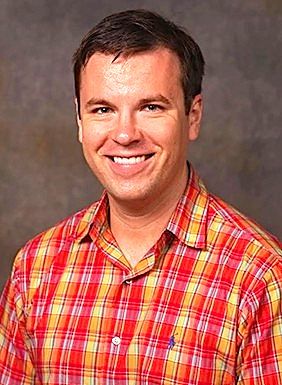
A Virginia high school geography teacher’s controversial Arabic calligraphy writing assignment this month is the latest unfortunate example of ignorance in America.
Ignorance of history and the law, that is.
Located in rural Shenandoah Valley, the Augusta County public school district made national headlines on Dec. 18 when it closed all of its facilities after outraged parents voiced concerns over a homework assignment asking students to write Islamic religious statements by copying Arabic calligraphy.
One parent even accused the school of “Muslim indoctrination.” The county sheriff reportedly said the school received messages that called for firing the teacher and putting “her head on a stake.” Many observers have criticized the school parents for being ignorant and intolerant.
While some parents have undoubtedly overreacted and deserve ridicule, the assignment seems to have been in violation of “separation of church and state,” a legal doctrine set forth in the Establishment Clause of the First Amendment to the U.S. Constitution. And that’s not OK, either.
Although students may be taught about religion, public schools may not teach religion. It’s an important distinction, and the line was arguably crossed in Cheryl LaPorte’s geography class at Riverheads High School in Staunton, Va.
Given that the assignment’s stated learning goal was to “give [students] an idea of the artistic complexity of calligraphy,” why have students copy — of all things — the Shahada, the Islamic creed?
The unnecessary injection of religion into the assignment put the school district on very shaky legal ground.
The “lesson plan was problematic,” observed Americans United for Separation of Church and State in a press release. “A statement of faith could be studied as part of an objective course about world religions, but students can do that without writing it out. If students were expected to copy passages from the New Testament, Hindu scriptures or even Richard Dawkins’ “The God Delusion,” there would be obvious problems. If [the teacher] wanted to help students understand how challenging calligraphy can be, there are other examples she could have chosen.”
This controversy harkens back to a similar situation faced by Long Island school parents.
In 1962, a group of families of public school students in New Hyde Park complained after the Board of Regents had authorized a short, voluntary, nondenominational prayer to “Almighty God” be recited at the start of each school day.
In a landmark case, Engel vs. Vitale, the U.S. Supreme Court ruled that by providing the prayer to students, New York officials officially approved religion, which was unconstitutional.
Subsequent court decisions have further limited school-directed classroom activities involving religion.
For example, in a 2009 case involving a suburban Philadelphia public school district, a federal court ruled against allowing Bible verses to be read aloud as part of a show-and-tell assignment.
The lawsuit, Busch vs. Marple Newtown School District, stemmed from an assignment inviting kindergarten students to present important aspects of their lives to their classmates. In addition, the students’ parents were asked to “share a talent, short game, small craft, or story” with the class that would highlight something about their child. One student made a poster displaying a church and asked his mom to read five Bible verses to the class.
The principal blocked the presentation, saying it was “against the law … of separation of church and state,” and the parent sued.
The U.S. Circuit Court of Appeals ruled against the parent, stating that “reading from the Bible or other religious text is more than a message and unquestionably conveys a strong sense of spiritual and moral authority … Parents of public school kindergarten students may reasonably expect their children will not become captive audiences to an adult’s reading of religious texts.”
If school officials can’t create a prayer that students may voluntarily recite and if a student’s parent can’t read a handful of verses from a religious text, it follows that a teacher requiring students to write a prayer found in the Quran would also be problematic in the eyes of the law.
As the Joint Statement of Current Law on Religion in the Public Schools, which is co-signed by the American Civil Liberties Union, American Muslim Council, American Jewish Committee, and many other religious and legal organizations, states: “Teachers may not require students to modify, include or excise religious views in their assignments.”
The Augusta County high school’s assignment arguably violated those guidelines, since it required students to write out in Arabic the Shahada, the Islamic statement of faith, which translates to: “There is no god but Allah, and Mohammed is the messenger of Allah.” The Shahada’s two phrases are both present in the Quran and recited by Muslims as part of worship.
Some parents who objected to the assignment may have been motivated by the wrong reasons, such as Islamophobia. But those who defended the teacher are equally ignorant — about the Constitution.
Mark Grabowski is an associate professor at Adelphi University in New York, where he teaches journalism and media law. The former lawyer and journalist is the 2015 winner of the best commentary/editorial award from the Press Club of Long Island. For more info, visit markgrabowski.com.






